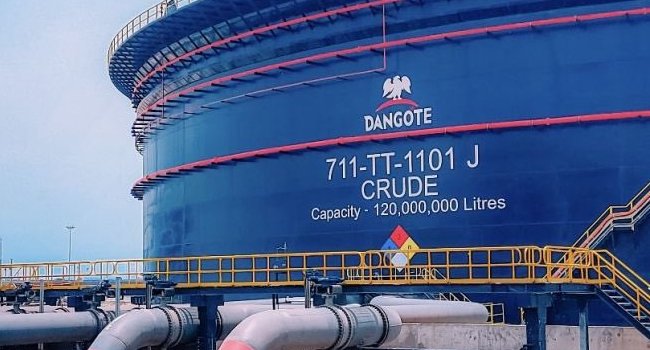The Dangote Oil Refinery has urged Nigeria’s upstream oil regulator to enforce the Domestic Crude Supply Obligation (DCSO) law, which mandates local producers to supply domestic refineries.
The refinery claims that lax enforcement is driving up its operational costs.
The $20 billion refinery, with a capacity of 650,000 barrels per day, was built by Africa’s richest man, Aliko Dangote, on the outskirts of Lagos.
Despite its scale, the refinery has struggled to secure adequate crude supplies from within Nigeria, where oil production is hampered by vandalism and underinvestment.
In a statement released on Friday, the refinery accused the Nigerian Upstream Petroleum Regulatory Commission (NUPRC) of not adequately enforcing the DCSO provision. “Our concern has always been that the NUPRC is pushing, but the international oil companies are not following the instructions,” said Anthony Chiejina, a spokesperson for Dangote Refinery.
As a result, the refinery often has to purchase Nigerian crude from international traders at an additional premium of $3-$4 per barrel, leading to increased costs of $3-$4 million per cargo. For September, the refinery expected 15 cargoes but was only allocated six by the Nigerian National Petroleum Corporation (NNPC).
In response, the NUPRC acknowledged the operational challenges faced by some producers and noted that others had committed most of their output to oil traders who financed their drilling. The commission stated that forcing an increase in supply could breach existing contracts.
Since its operations began in January, Dangote Refinery has received nearly half of the 325,000 barrels per day it requires. The DCSO, established under Nigeria’s 2021 Petroleum Industry Act, has proven difficult to enforce due to declining oil production and the cash-strapped NNPC utilizing much of its output for crude-backed loans.
The Dangote Oil Refinery has also encountered issues with the downstream regulator over fuel imports, as it navigates a challenging market environment.









